On Saturday 8th March 2020 fifty attendees from the Newry tech community gathered in the Mardyke Suite at the Canal Court in Newry for a series of talks on cutting-edge technology.
The event was organised by Newry Digital – a group of local IT professionals who meetup to share and promote technology in the Newry area. The group have been organising tech meetup events in Newry for several years on topics as diverse as cryptocurrency, drones, web and mobile development.
The conference would not have been possible without the support of sponsors eShopWorld, Kainos, LibertyIT and the British Computer Society.

The event kicked off with a talk by Killeavy-native Brian Teggart who described a project at Unum of moving to into a cloud infrastructure in AWS. The project involved the use of over 20 AWS services including Lambda, S3, VPCs. Brian demonstrated the CloudFormation code used for the ‘Infrastructure as Code’ project. Next up was Leo McCavana who works at Allstate and has family ties to the Newry area and works at Allstate. Leo described how automation with Terraform and Ansible can be used speed up and improve ‘Red Team’ security testing.
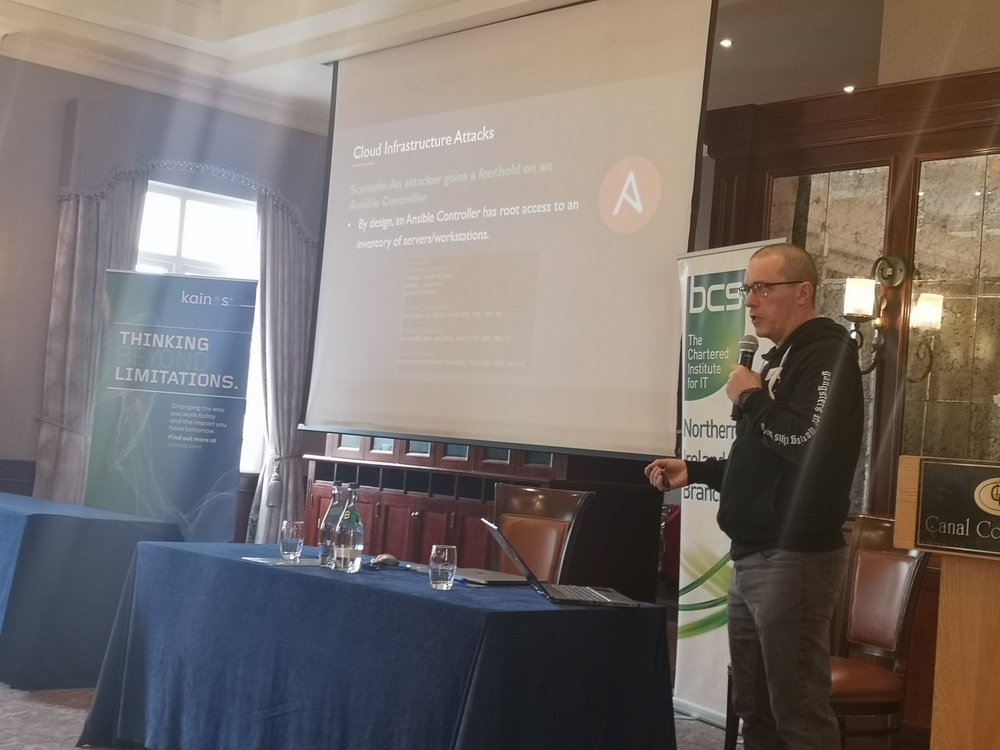
Leo coached at the recent cybersecurity CTF event at the SRC
After a break Phil Weir of development studio ‘Flax & Teal’ described delivering projects such as Our Raging Planet and a scientific project he carried in Dundalk. Phil described delivering architectures involving PHP Laravel, Postgres, Python, Kubernetes and OpenFaaS. Phil delivers training in Python and Kubernetes including a one-day training session for Newry Digital in November 2019.
Following Phil’s talk, we had a series of ten minute lighting talks beginning with Jonny McCullagh introducing the ‘Smart Newry’ project with the aim of deploying environmental sensors throughout the town gathering data to be made open for citizen analysis. Brian Cleland next described the use of Google Colab as a live Python environment he used to analyse hospital travel times in Northern Ireland based on political decisions on health.
Chris McCabe next described using the Google BigQuery cloud service for machine learning predictions on citizen income based on education, gender, race and location.
Funmbi next introduced the languages and approach used for developing firmware systems embedded in devices including calculators, washing machines and development using Arduino and Pi. QUB student Martin O’Donnell next described his dissertation project for improving the accuracy of image recognition of vehicles.
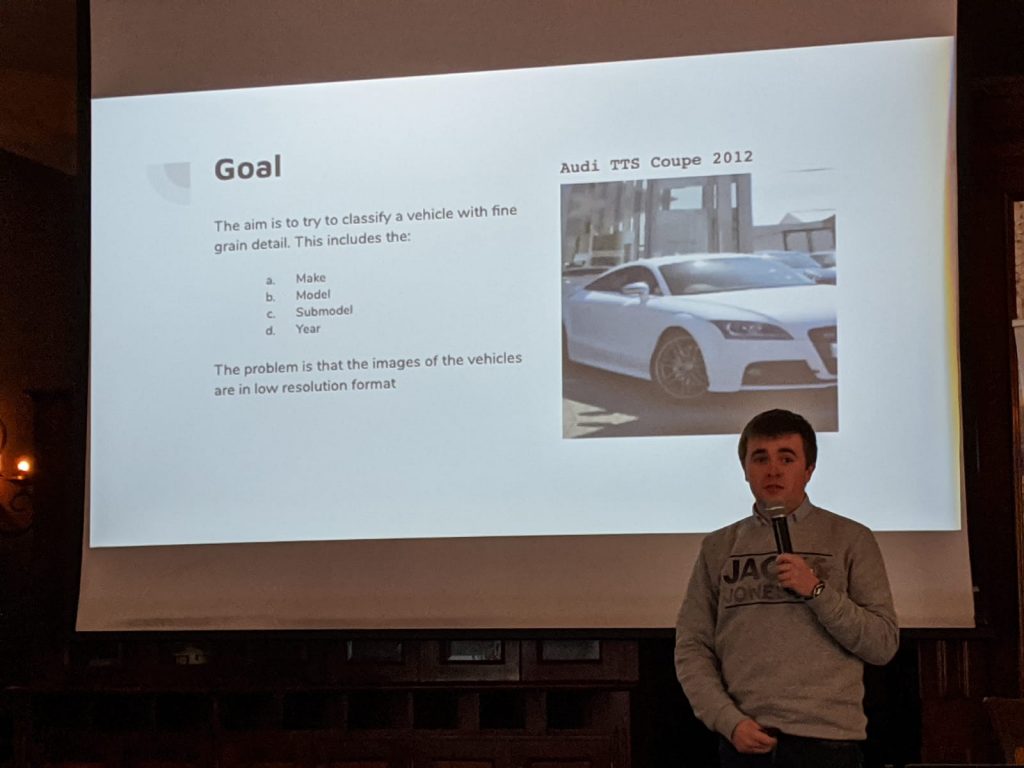
Newry Dojo mentor Martin O’Donnell on vehicle image analysis
Following the lightning talks we had Newry native Conor Graham described his work in developing a GeoNode portal in QUB with Belfast City Council. The GeoNode server provides open geospatial datasets that can be used by citizens and students for GIS analysis in tools such as QGIS.
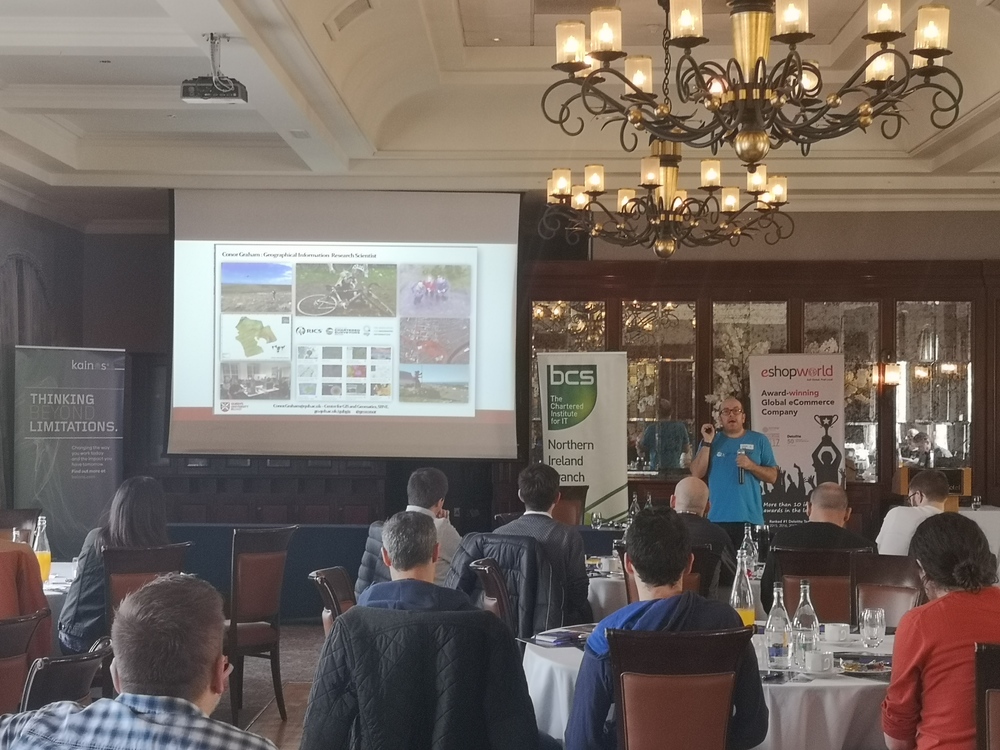
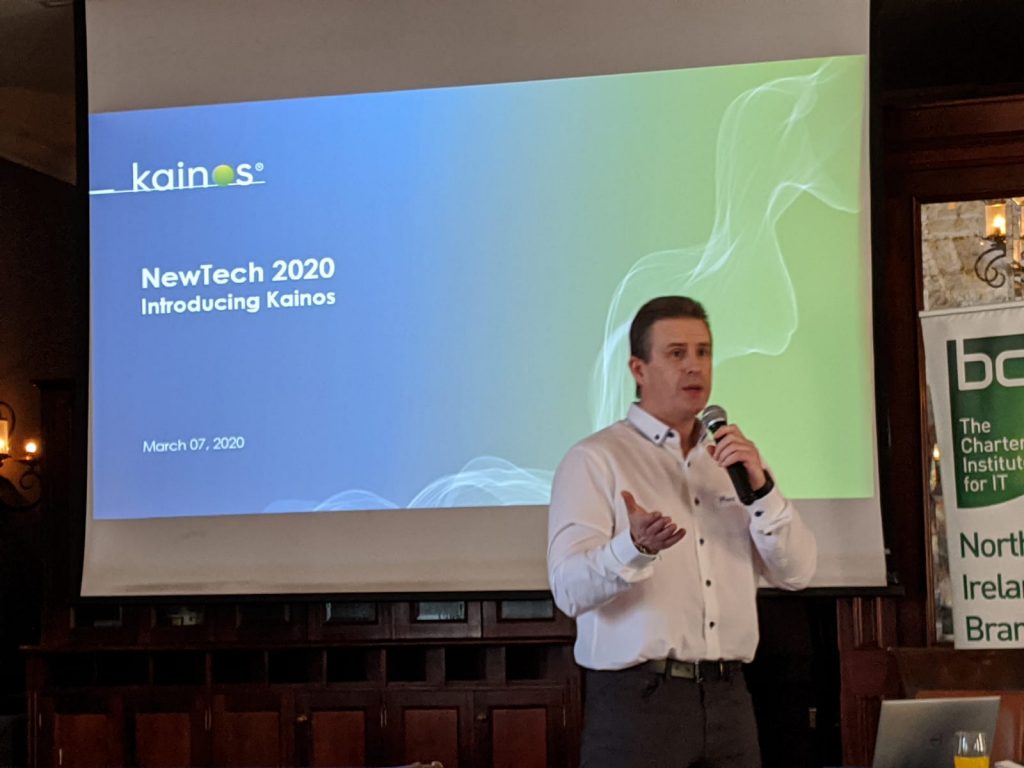
After lunch Mark Tumilty of Kainos succinctly described the agile approach to software development including Kanban, stand-ups and Scrum sprints. Mark showed how at Kainos he uniquely combined Agile with ITIL, for client support including government departments.
Jonathan McDowell took the stage next. Although he describes himself as a ‘blow-in’ Jonathan was one of the first to begin mapping Newry in Open Street Maps. Jonathan’s talk had lots of links with previous talks including Funmbi’s embedded systems and Jonny’s Smart City devices. Jonathan described inexpensive devices that can be used in home automation systems he has implemented including smart lighting and temperature control via home-assistant.io
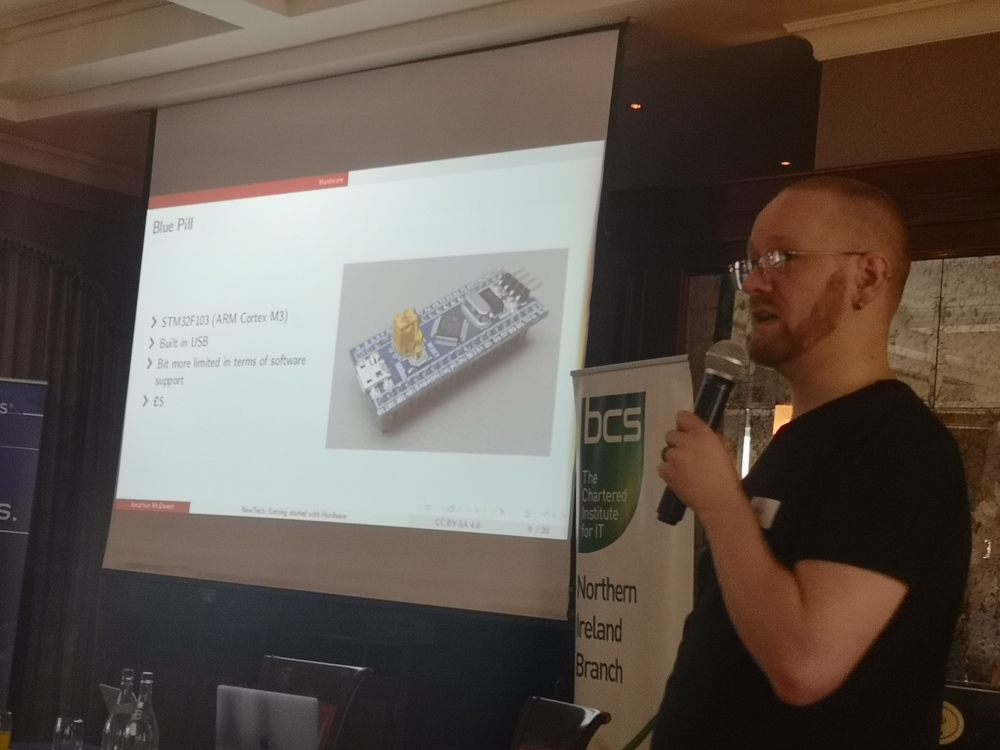
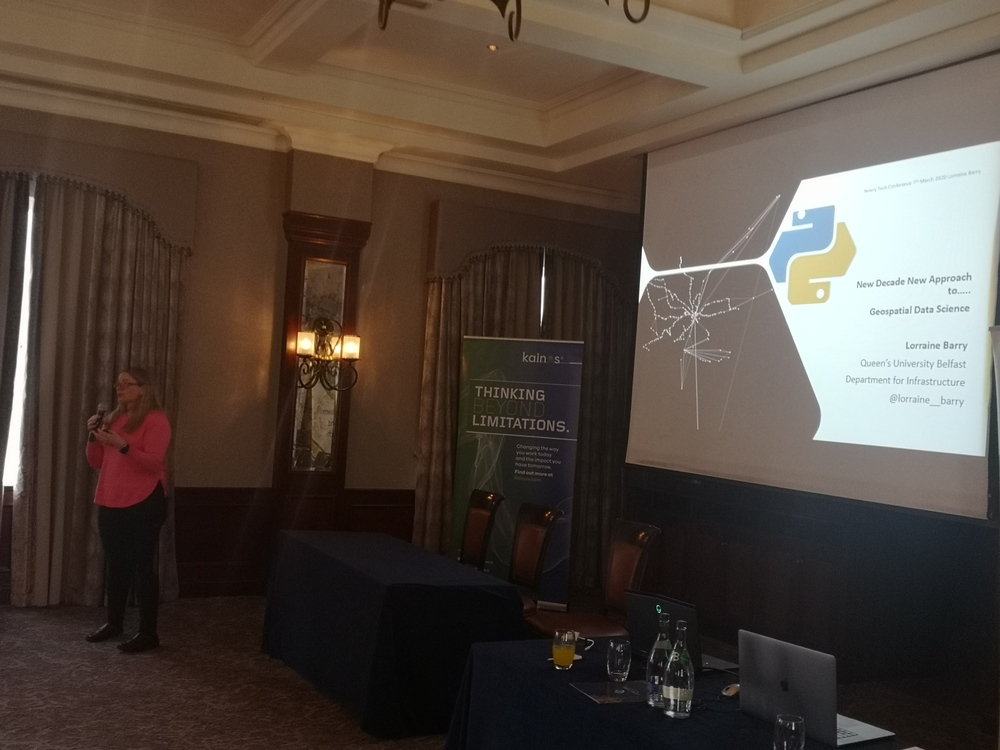
The last talk of the day was from Lorraine Barry, geoscientist and Python programmer, who described her research on travel infrastructure and demonstrated the use of Python libraries including Pandas, Geopandas, peartree, networkx, OSMnx, plotly express and Bokeh. Lorraine demonstrated these libraries with analysis of the travel network around Newry.
The final item in the agenda was a panel discussion with Brian McGee of the SRC, Paddy Murdock of The Hub and Jonathan McDowell. The first question pitched to the panel was on the challenges of attracting tech employers to Newry. The panel and attendees highlighted that while Newry has great education, internet and meetups more could be done by local authorities in improving rates, planning delays, building stock and transport links.
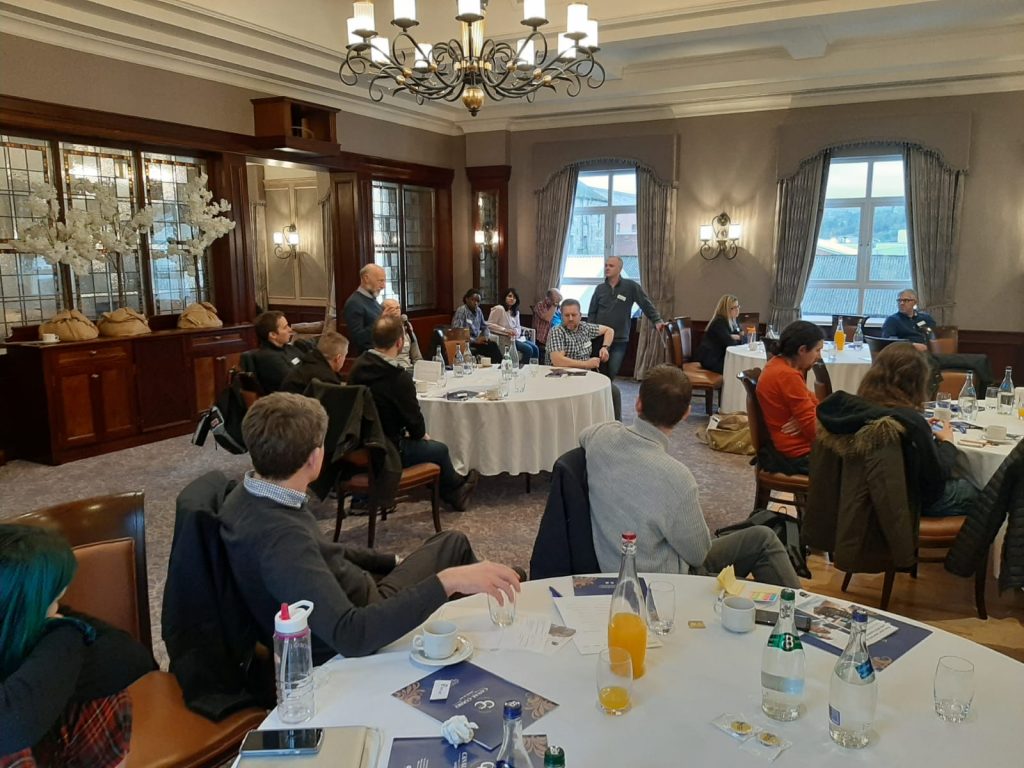
More needed on rates, planning delays, building stock and transport links
The final question was around encouraging indigenous tech in the Newry area and the support available from the SRC was highlighted, as was the benefits of co-working spaces where funding and ideas could be shared.
The event continued with after-drinks where connections were made, ideas explored and demands made for future NewTech events!